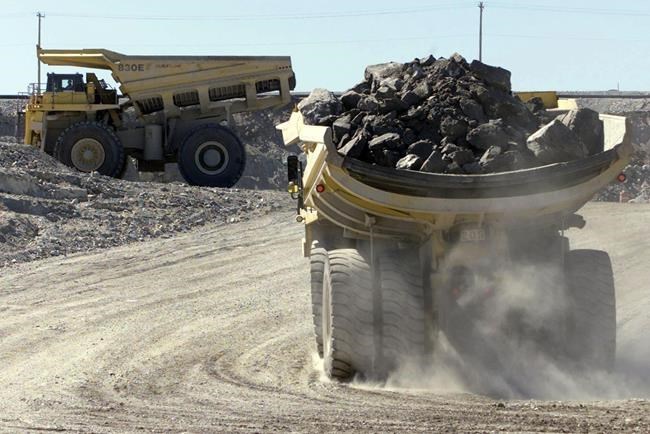CALGARY — The owner of Canada's first diamond mine blames transportation and business disruptions caused by measures to control the COVID-19 pandemic for its decision to seek court protection from creditors.
In an affidavit filed with the Alberta Court of Queen's Bench, Krystal Kaye, chief financial officer for Dominion Diamond Mines ULC, said the pandemic has had a "devastating impact" on the global diamond mining industry.
"Global diamond sales saw an almost immediate slowdown when the COVID-19 related lockdown began in China and the impact has become more acute as lockdown measures have been implemented in nearly all parts of the world in which Dominion operates," she said in the filing.
Travel and business lockdowns were felt most keenly in India, where most of the world's rough diamonds are sorted, cut and polished; in Antwerp, Belgium, where they're sold; and the United States, the top buyer of diamonds for retail sale, she added.
She said Dominion's high debt levels makes it impossible for the company to continue its business as usual.
Calgary-based Dominion was granted creditor protection under the Companies’ Creditors Arrangement Act on Wednesday and FTI Consulting was appointed monitor.
CCAA gives insolvent corporations protection from creditors while they restructure their business and financial affairs.
Dominion operates the Ekati diamond mine, Canada's first, in which it owns a controlling interest, and owns a 40 per cent stake in the Diavik diamond mine, both located in the Northwest Territories.
Dominion shut down the Ekati mine last month in an effort to protect its workers and local communities from the spread of COVID-19, but the Diavik mine, operated by a subsidiary of Rio Tinto PLC, is still open.
The affidavit notes that Dominion was unable to pay a second April cash call of C$16 million to cover operating expenses at Diavik and is therefore in default of its Diavik joint venture payment obligations.
Ekati is the largest diamond mine by output volume globally that has completely suspended operations due to the pandemic, although others have reduced their output and workforces, independent diamond market analyst Paul Zimnisky said in an email.
"I am estimating that global diamond production could fall from over 140 million carats last year to 122 million this year with all of the production halts and capacity reductions happening globally in recent weeks," he said.
The reductions in diamond supply may provide a scenario that is positive for miners that survive the current slowdown, he added.
The Washington Companies, a private Montana-based company, bought Dominion for US$1.2 billion in 2017.
Dominion had revenue from diamond sales of about US$528 million in 2019, the affidavit says, but the shutdowns in India and Belgium have trapped diamond inventory from Ekati and Diavik with book value of about US$180 million.
In an email response, Dominion declined a request for an interview but provided an answer to a question concerning employees.
"During the CCAA process, Dominion employees will continue to have the same job responsibilities and receive their compensation and benefits without any change or disruption," it read.
"Furloughed employees will continue to receive the benefits they have been provided while they are not working."
According to the affidavit, Dominion is one of the two largest non-governmental employers in the Northwest Territories, with about 40 per cent of its 634 Canadian employees being northern residents and 60 per cent of those people being Indigenous people. It also employed 425 contract workers in 2019.
It said only 212 people are actively employed now with the temporary Ekati mine shutdown.
This report by The Canadian Press was first published April 23, 2020.
Dan Healing, The Canadian Press



